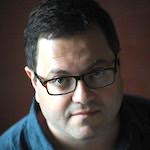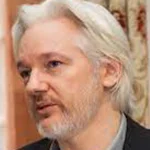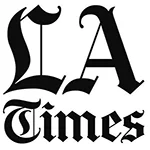 |
| Arkady Ostrovsky |
Russia’s invasion of Ukraine has entered a new phase as military commanders push back against the deranged dictates of president Vladimir Putin that have led to disaster in Ukraine
That was a key point made today at the “Ukraine at War: A New Offensive” webinar sponsored by The Economist.
Arkady Ostrovsky suspects the military pressured Putin into canceling any plan to storm the massive Azovstal steel plant, which is Ukraine’s last pocket of resistance in the key port city of Mariupol.
Commanders warned him that such an attack would result in the senseless slaughter of Russian soldiers, who are already suffering from low morale.
No longer willing to follow political orders, generals “will now tell Putin what is possible and what is not,” said Ostrovsky.
Putin caved and ordered a blockade of the steel plant with a cordon so tight “a fly cannot fly through.”
Ostrovsky has no doubt that, left to his own devices, the Russian leader would have deployed a tactical nuclear weapon to level Azovstal—if he thought that he could get away with it.
One wild card: Would the military have obeyed the order to drop the nuclear bomb? Putin wouldn’t last very long without the support of the generals.
Ostrovsky said it’s significant that Russian TV showed pictures of Putin meeting with defense minister Sergei Shoigu without the huge ego-stroking table prop used by Russia’s president to symbolize his power and authority over officials.
Shashank Josi, defense editor of The Economist, downplayed general Rustam Minnekayev's remarks that Russia has now expanded its mission from capturing the eastern Donbas region of Ukraine to the south.
“That’s entirely aspirational,” said Josi, “because Russia currently lacks the manpower to expand its push from the east.”
He called the statement “dumb” and something that only sets Russia up for more failure after its defeat in the northern part of Ukraine and failed effort to take over Kyiv.
Packed their Parade Uniforms
Ostrovsky said the Russians had expected Kyiv to fall within three days.
“They packed parade uniforms, celebratory fireworks and prepared speeches” for the anticipated celebration of Ukraine’s liberation from the Nazis.
Meanwhile, the extreme violence and atrocities committed by the Russian army in places like Bucha has erased any support that the country enjoyed in the Russian-speaking sections of Ukraine.
Ostrovsky estimated that only five to seven percent of Russian-speaking Ukrainians in Donbas support the invasion.
That’s down from 30 percent prior to Russia’s annexation of Crimea in 2014.
On the home front, Ostrovsky said 30 percent of Russians support Putin 100 percent, while 20 percent are against him.
The remaining 50 percent may swing Putin’s way only because they are bombarded 24/7 by Moscow’s propaganda machine without access to programming from western news outlets that have been banned by Putin.
Ostrovsy warned against putting much stock in polling that shows strong Russian support for the war.
He noted that 90 percent of respondents polled refused to answer sections about their views of the Ukrainian war.
They fear possible retribution by the goons and armed thugs in charge of harassing people and arresting dissenters.
There have been more than 15K arrests since the beginning of the February 24th invasion.
Ostrovsky said though it takes an incredible act of courage, people in Moscow are being arrested every day for speaking out against the war and Putin’s totalitarian system.
Sacha Nauta, executive editor, moderated the session.


 Trump Media & Technology Group today reported a $58.2M net loss on $4.1M in 2023 revenues, a disclosure that drove its stock price down 22.6 percent to $47.96.
Trump Media & Technology Group today reported a $58.2M net loss on $4.1M in 2023 revenues, a disclosure that drove its stock price down 22.6 percent to $47.96. Barry Pollack, an attorney at Wall Street’s Harris St. Laurent & Wechsler, has registered Julian Assange as a client with the Justice Dept. “out of an abundance of caution.”
Barry Pollack, an attorney at Wall Street’s Harris St. Laurent & Wechsler, has registered Julian Assange as a client with the Justice Dept. “out of an abundance of caution.” Paramount Global to slash 800 jobs in what chief executive Bob Bakish calls part of an effort to “return the company to earnings growth"... Rolling Stone editor-in-chief Noah Shachtman is exiting at the end of the month due to disagreements with chief executive Gus Wenner over the direction the magazine is taking... The New York Times broke the $1 billion barrier in annual revenue from digital subscriptions in 2023... Press Forward is investing more than $500 million to strengthen local newsrooms.
Paramount Global to slash 800 jobs in what chief executive Bob Bakish calls part of an effort to “return the company to earnings growth"... Rolling Stone editor-in-chief Noah Shachtman is exiting at the end of the month due to disagreements with chief executive Gus Wenner over the direction the magazine is taking... The New York Times broke the $1 billion barrier in annual revenue from digital subscriptions in 2023... Press Forward is investing more than $500 million to strengthen local newsrooms. The majority of news articles are read within the first three days of publication, according to a recent report.
The majority of news articles are read within the first three days of publication, according to a recent report. The Los Angeles Times gives pink slips to 115 people or 20 percent of its newsroom staff... TIME is also laying off about 30 employees, which is approximately 15 percent of its editorial staff... The Baltimore Banner, which was launched by Stewart Bainum in 2022 after he failed to buy the Baltimore Sun, added 500 subscribers per day in the three days following Sinclair Broadcast Group's deal to purchase the Sun.
The Los Angeles Times gives pink slips to 115 people or 20 percent of its newsroom staff... TIME is also laying off about 30 employees, which is approximately 15 percent of its editorial staff... The Baltimore Banner, which was launched by Stewart Bainum in 2022 after he failed to buy the Baltimore Sun, added 500 subscribers per day in the three days following Sinclair Broadcast Group's deal to purchase the Sun.


 Have a comment? Send it to
Have a comment? Send it to 
Apr. 23, 2022, by Joe Honick
There is a huge difference between Putin and Trump, and the question is whether the Russian leader when cornered actually has a General Milley to calm the situation. Remember that when Putin was in charge of the Russian intelligence operation in Berlin, he asked Moscow's permission simply to kill all protesters. He was tuned down then but runs the whole deal now. Obviously Ostrovsky knows his business and seems to wonder the same.
In another area, it's doubtful China will want to climb aboard the Putin train. What is missing from the entire discussion are two elements: Saudi Arabia and Mike Flynn about whom no one comments and could be roaming the country planting even great seeds of discontent, especially among the military.